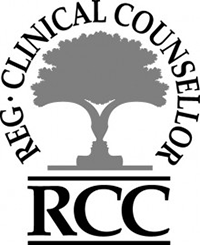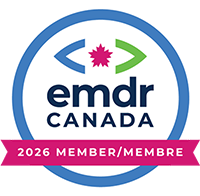Registered Clinical Counsellor - Jo Vanderwal, RCC
Areas of Expertise
Jo is a Registered Clinical Counsellor with BCACC. She holds a Masters degree from Regent University, a CACREP and APA accredited university, in the field of Community Counselling. With over 13 years experience, Jo is seasoned in a EMDR (S.A.F.E) Person Centred, Deep Brain Reorientation, Cognitive Behavioural (CBT), Strength Based, Mindfulness and Somatic Release , Career Clinical frameworks.
She has expertise in working Anxiety, Trauma, Grief and Loss, Career and College Development, Compassion Fatigue, Depression and other mental health areas. Her current focus is using S.A.F.E EMDR, developed by Deb Kennard from the Personal Transformation Institute and Deep Brain Reorientation, developed by Frank Corrigan. These theoretical frameworks are designed to give our brains and our personhood the relief it needs to overcome trauma in our lives. She has completed her Flash training, and SAN’YAS Indigenous Cultural Safety Training. EMDR is an empirically verified treatment that uses neuroscience to give our nervous systems and brains an opportunity to experience relief and allows us to move forward confidently.
She has worked with adult learners, high school students, college students, children and the general population.
She has presented in multi-disciplinary institutions, presented on Leadership, Multi-Cultural Counseling, Career, Depression and completed several Mental Health Awareness campaigns.


Professional trainings
2025
G-TEP Certification – Elan Shapiro and the Personal Transformation Institute
Grief and EMDR– Kristal Helman MSW, RSW- framework for the EMDR-GRIEF protocol and ADC (after death communication
EMDR Tapping Into Ethics– Carol Miles MSW, LCSW- Ethical Frameworks- cultural awareness, humility, confidentiality, professionalism, proper documentation, consent practices, consulting with colleagues to ensure competency, self care, legal implications of EMDR: potential impacts on memory, EMDR as treatment for specific conditions
Transcending Levels of Consciousness– Sophia Barna M.Ed., M.S.W. R.S.W- EMDR and integrating the Map of Consciousness by David R Hawkins. Transcend beyond the the relief of symptoms of trauma, depression, anxiety, grief and foster holistic healing and reach peak experiences. Protocol for Transcending Levels of Consciousness with EMDR- case studies and spiritual well being
In the Middle of the Avalance: Experineces with the ASSYST Treatment Intervention Procedures in the Field with Refugees and Asylum Seekers– Nicole Mainthow Clinical Director EMDR Certified— Clinical case conceptualization with the Acute Stress Stabilization Syndrome treatment intervention protocol to alleviate the immense suffering by PTSD and Complex PTSD in this specific population
Conceptualizations- A Guide for EMDR Therapists- Doloroes Mosquera Psy, Director of INTRA-TP- A progressive approach in working with traumatic memories maybe implemented safely but case conceptualization is key to understand and how to adapt to protocol. Case conceptualizations for simple and complex dissociative disorder
EMDR with Obsessive Compulsive Disorder– Robin Shapiro LICSW- EMDR and Polyvagal techniques for learning fear and calming anxiety in clients with Obsessive Compulsive Disorder (OCD). Bodily and emotional anxiety and their presentations in OCD. Introduction of the Two-Hand technique and how to target fear with EMDR and how to calm the body when fear arises in the future
Accommodating Autism with Early Trauma EMDR: The Challenges of Alexithymia, Dissociation and the Window of Tolerance– Dr. Sandra Paulson- Emphasis on early trauma work with autistic adults. Introduction to intensive formats and modifications for the rustic adult populations.
Compassion Fatigue: Caring for Ourselves while Caring for Others- Dr Gabor Mate- Based on the book When the Body Says No: The Cost of Hidden Stress- exploration of a psychic and physical lassitude when engaged in caring for others and the depletion of the energies. This source is found in the personal history of the individual and her relationship to the work, no merely the nature of the work itself. Practices to prevent what is known as compassion fatigue and to restore energy if we have been affected by the depletion of it.
The Fairy Tale Method and EMDR– Susan Doiron CCC- standard protocol for EMD and EMDR with the Fairy Tale Method. Feeding the Hero and Empowering the client to keep a balance of the right emotional distance between the client and the target- helps to aid clients who need to overcome obstacles that have been keeping them stuck.
Compassion-Focussed EMDR therapy in the treatment of Moral Injury and Shame-based Trauma- Dr. Derek Farrell, Psy, MBE- Symptoms existing in ICD-11 DSM 5 criterion for PTSD are not sufficiently captured. Explores core components of moral injury and shame-based traumas using individual and political cases studies through the lens of Adaptive Information Processing (AIP_ Specific skills of Compassion-focussed EMDR therapy (CF-EMDR) including case conceptualization, frameworks, trauma regulation, strategies and compassion-focussed interweaves and addressing vicarious traumatization and self care.
BCACC’S Quality Assurance Continuing Competency (QACC) Program
Certifications
Bilateral Innovations-Spiritual Trauma and EMDR Therapy 7 Steps to Help
Clients Heal– Mark Odland MA, LMFT, MDIV, will teach you 7 steps, or principles, to help your clients heal from spiritual trauma. In its broadest sense, all trauma might be considered spiritual, because it forces us to confront those deeper questions of meaning and purpose in our lives. However, due to the constraints of time, this course will provide a particular focus on working with those who have experienced trauma within organized religion
Advanced Flash Technique– Dr Philip Manfield- this advanced webinar is an opportunity to improve your skills at conducting the Flash Technique and get up to speed on recent advances and research. Using video clips, experiential exercises, live demonstrations, and didactic presentation, participants will be introduced to more advanced principles and applications of the Flash Technique, including current research, subconscious processing, interactive positive engaging focus (PEF), the treatment of preverbal trauma (demonstrated in a clinical video), processing extreme forms of dissociation and overwhelmingly disturbing memories, group Flash treatment, and use of the Flash Technique outside of the structure of EMDR to reduce distress from a disturbing memory.
Flash Technique– Dr Philip Manfield: The Flash Technique (FT) is a recently developed evidenced-based therapeutic intervention for reducing the disturbance associated with traumatic or other distressing memories. Unlike many conventional trauma therapy interventions, FT is a minimally intrusive option that does not require the client to consciously engage with the traumatic memory. This allows the client to process traumatic memories without feeling distress. As an adjunct to the EMDR preparation phase or any exposure-based treatment, it makes it possible to process memories that would otherwise be intolerable or overwhelming to the client.
Advanced EMDR- Certification- Personal Transformation Institute
EMDRIA Certification for EMDR
Deep Brain Reorientation- Understanding Basic Training with Advanced Attachment— Sarnia Institute of Trauma with Frank Corrigan, Doctor
Sanyas Indigenous Cultural Certification
